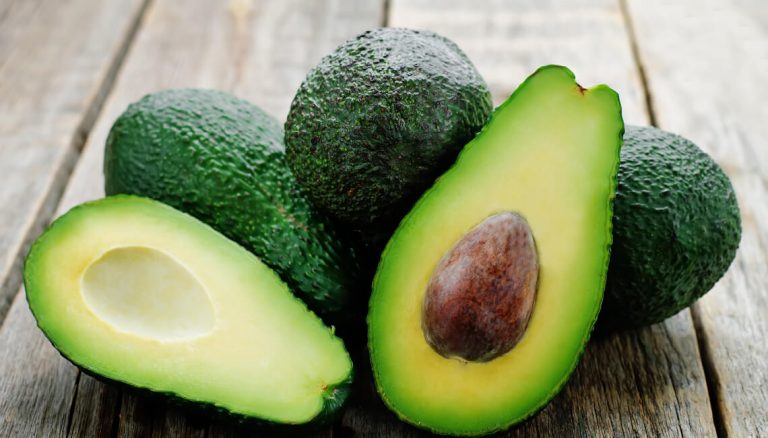The difference between folic acid and folate for a healthy pregnancy
They sound similar, but what EXACTLY is the difference between folic acid and folate? And why is it so IMPORTANT to know the difference for a healthy pregnancy?
Thankfully, nutritionist and natural fertility specialist Tasha Jennings, the founder of Conceive Baby, has broken it down for us and which foods are great for pregnant women (as they are rich in nutrients).
Plus, she also explains to The Healthy Mummy how BOTH folic acid and folate work play a hand in ensuring a healthy pregnancy.
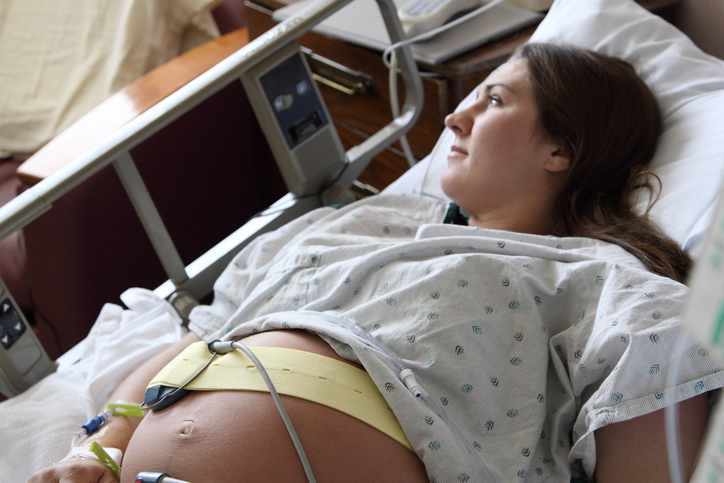
Folate vs folic acid
Folate and folic acid are not the same, explains Tasha. Folic acid is a synthetic supplemental source of folate.
“Unfortunately, 50 per cent of people struggle to properly metabolise folic acid into useable folate. Those affected are more likely to have difficulty conceiving and if conception does occur, they are at a greater risk of miscarriage and birth defects,” she says.
“Ensuring a healthy intake of folate through rich dietary sources should be the first and fundamental step to ensuring a healthy folate intake.
“However, because folate is so important during the preconception and early pregnancy period, a good prenatal supplement alongside a healthy dietary intake is recommended.
“It’s best to look for a supplement which provides folate in the form of folinic acid (‘active’ form of folic acid) as well as folic acid to optimise absorption.”
What are the benefits of folate?
Folate, is the natural nutrient found in food and used by the body to support healthy growth and development.
“Folate is so important for reproductive health that without sufficient folate, you cannot sustain a pregnancy. Women with low folate levels are at increased risk of miscarriage and birth defects,” says Tasha.
“Folate supports development of the neural tube, which connects the brain and the spinal cord. This cord enables the brain to communicate with the rest of the body.
“Complete development and closure of this neural tube occurs in the first five weeks of pregnancy, before you may even be aware you are pregnant. Failure of the neural tube to properly develop can lead to miscarriage or neural tube defects.”
Therefore, ensuring a healthy intake of folate prior to pregnancy and during the first five weeks is essential, reveals Tasha. Ideally you should ensure a healthy folate intake at least three months prior to conceiving. This is when the egg is developing from immature follicle, to mature egg, ready for release at ovulation.
“It is during this 90 day cycle of egg development that you can have a significant impact on the health of the genetic material you pass onto your future child,” says Tasha.
“The healthier and more nutrient rich the environment, the healthier the egg will be, which can significantly impact the long-term health of your future baby. Folate plays a key role in this healthy egg development.”
How do you make sure you are getting enough folate in your diet?
A healthy dietary intake of folate is vital for a healthy baby, says Tasha. Good dietary sources of folate include:
- Broccoli
- Spinach
- Asparagus
- Lentils
- Kidney greens
- Pinto beans
- Black beans
- Cauliflower
- Parsley
- Brussel sprouts
- Celery
- Bok choy
- Cabbage
- Avocado
- Quinoa
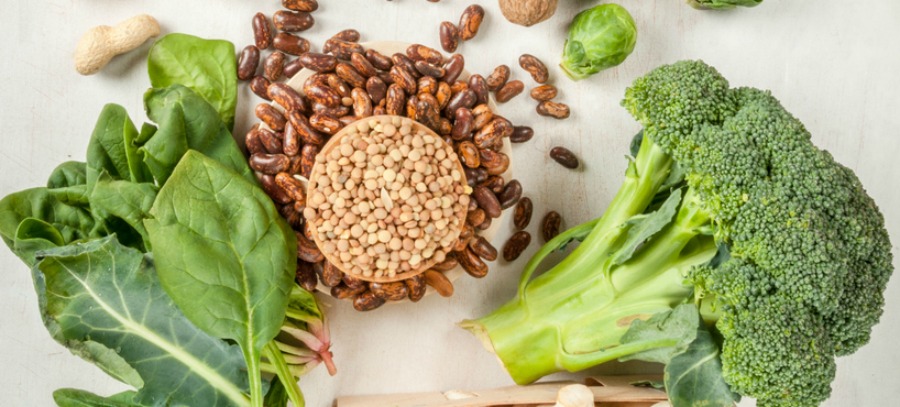
Consuming a good variety of these folate rich foods is a great way to boost your folate intake during preconception and pregnancy, says Tasha.
However, it’s important to note that folate is a very unstable nutrient, meaning that if you heat it, e.g. cook your broccoli until it’s mush or process it, you lose it.
“Due to the high importance of folate for reproductive health, today’s foods are often fortified with folic acid, and folic acid supplements are recommended to women of child-bearing age,” says Tasha.
“For the past 20 years a dose of 500mcg of folic acid has been recommended for women who are pregnant or wanting to fall pregnant.
“However, new studies are finding that 40 per cent of women are still not achieving the recommended blood levels of folate despite taking folic acid supplements and consuming foods fortified with folic acid.”
What should you do if your prenatal supplement makes you feel sick?
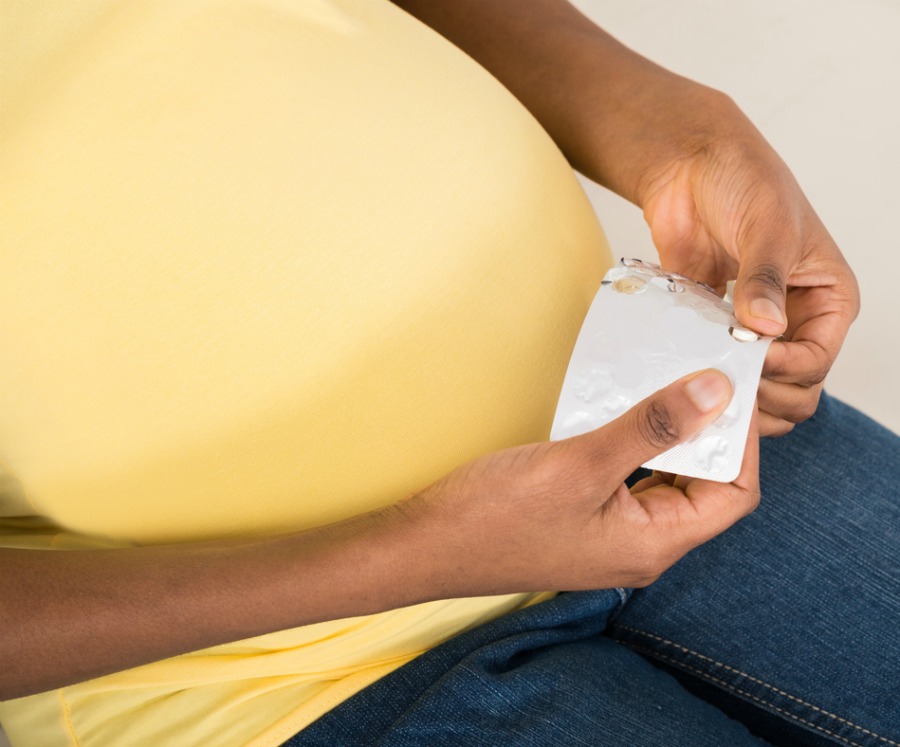
Some pregnant women struggle to take prenatal supplements during the first trimester, as it can cause sickness.
“If your prenatal supplement is making you nausea then I would recommend switching brands,” says Tasha.
“If your vitamins are being well absorbed and utilised by the body, then nausea and digestive upset cannot occur. It is when the nutrients in the prenatal multivitamin are not being well metabolised, that they can cause digestive issues.”
“It’s all well and good to have the right vitamins in the tablet, but if those vitamins are not reaching your bloodstream, then they are a) not effective and b) can remain un-metabolised and cause constipation, nausea and digestive issues.”
Tasha advises women who can’t take their pregnancy supplement to look for one which provides the active form of folic acid, folinic acid, which alongside folic acid helps optimise folate absorption.
Are your iron tablets also making you sick during pregnancy?
Some women suffer from depleted iron levels while they are carrying, this can be a side effect of gestational anaemia. But Tasha says a common complaint about iron tablets is that it can make pregnant women sick.
“The other common culprit when it comes to nausea is iron. Iron is important during pregnancy, working in combination with folate and B12 in the synthesis of DNA. However, it’s important to note that iron is a heavy metal and is not easily excreted by the body so it’s just important to get enough as it is to not take too much,” she says.
“The recommended intake for iron during pregnancy is 27mg and 18mg prior to conception. The Upper Safe Limit is 45mg. However, some prenatal supplements provide well above these recommended levels and even well above the upper safe limit. This high intake is highly likely to cause nausea, digestive upset and constipation.
“Iron is best taken in lower doses of around 8mg, alongside healthy dietary intake. If more iron is required an additional supplement can be added and taken with food at an alternate time of day to your prenatal. It’s also best to look for supplemental iron in the form of an amino acid chelate, which is the best absorbed and best tolerated form of iron.”
Another great source of iron, which is also gentle on the tummy, are The Healthy Mummy’s Super Greens – as it has more iron than 12 cups of spinach.
The Healthy Mummy Pregnancy Smoothies
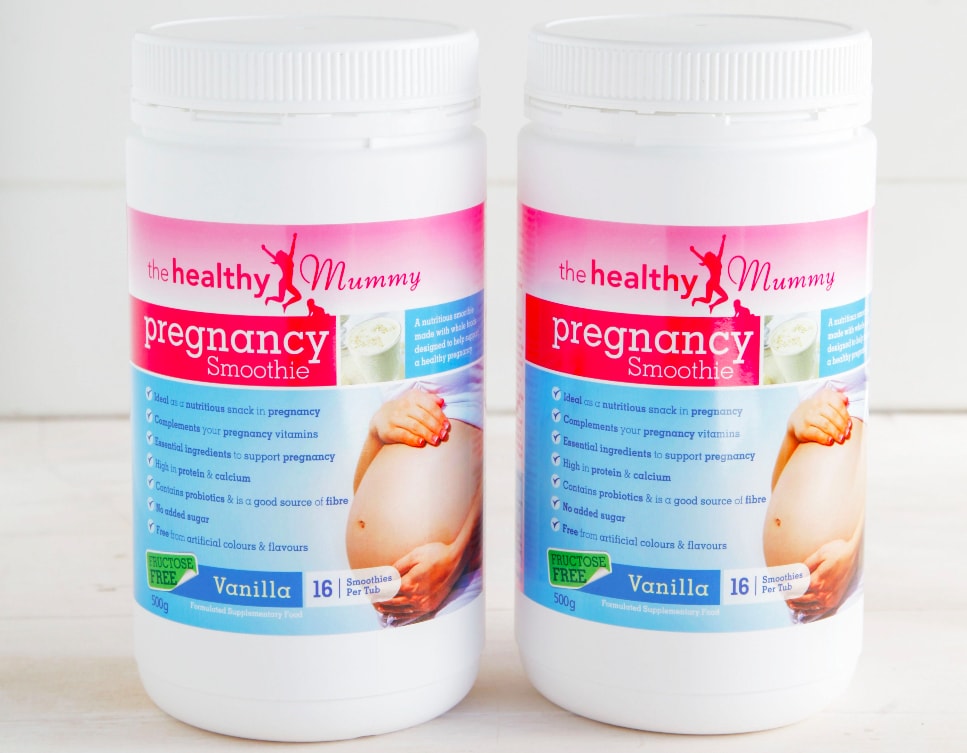
Are you currently pregnant? Then you should talk to your doctor about including our yummy Healthy Mummy Pregnancy smoothie into your diet.
If you are suffering from morning sickness and find eating food difficult – our smoothie is a great way to nourish your body with a easy to drink smoothie- it also contains ginger.
The Healthy Mummy Pregnancy Smoothie is designed to complement, not replace, your prenatal vitamin intake. Our nutritionists ensured that the vitamins and minerals in the smoothie are at a low level so there is no risk of doubling up on any pregnancy vitamins.
Key nutrients needed for pregnancy
The Healthy Mummy Pregnancy Smoothie provides a Good Source of Vitamins & Minerals – providing extra nutrition, including protein, vitamins & minerals for expectant mums
- Folate – contributes to maternal tissue growth during pregnancy. Consumption of at least 400mcg† per day, at least one month before and three months following conception may reduce the risk of fetal neural tube defects.
- Vitamin B12 – necessary for normal cell division, neurological structure & function, & contributes to normal blood formation, which are important processes during pregnancy.
- Calcium – necessary for normal teeth, bone structure, important for baby’s development.
- Iodine, Phosphorous, Vitamin D & Vitamin B12 – contribute to normal growth & development, including that of the baby.
- Vitamin C, Vitamin B2, Vitamin B3, Vitamin B6, Vitamin B12, Folate & Iron– contributes to the reduction of tiredness & fatigue, symptoms often experienced by expectant mums.
- Protein – necessary for tissue building & repair, normal growth & development of bone & contributes to the growth of muscle mass.
- Probiotics – contribute to gastrointestinal health & the maintenance of beneficial gastrointestinal microflora, which can benefit pregnant women
- Fibre – aids in regular bowel motions, which can become irregular during pregnancy.
It is ideal as a high-protein, high-calcium snack in pregnancy. You can download the Pregnancy Smoothie Label here.
To purchase yours, click here.
*Please note that The Healthy Mummy Pregnancy range promotes healthy weight gain in pregnancy*




